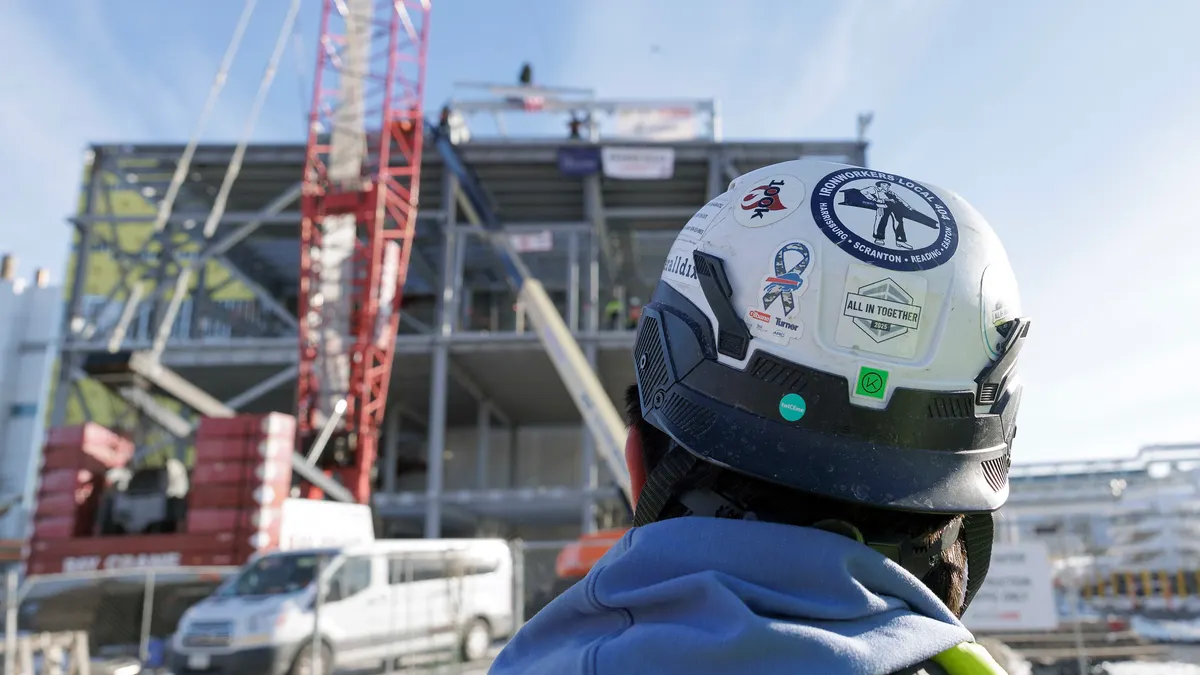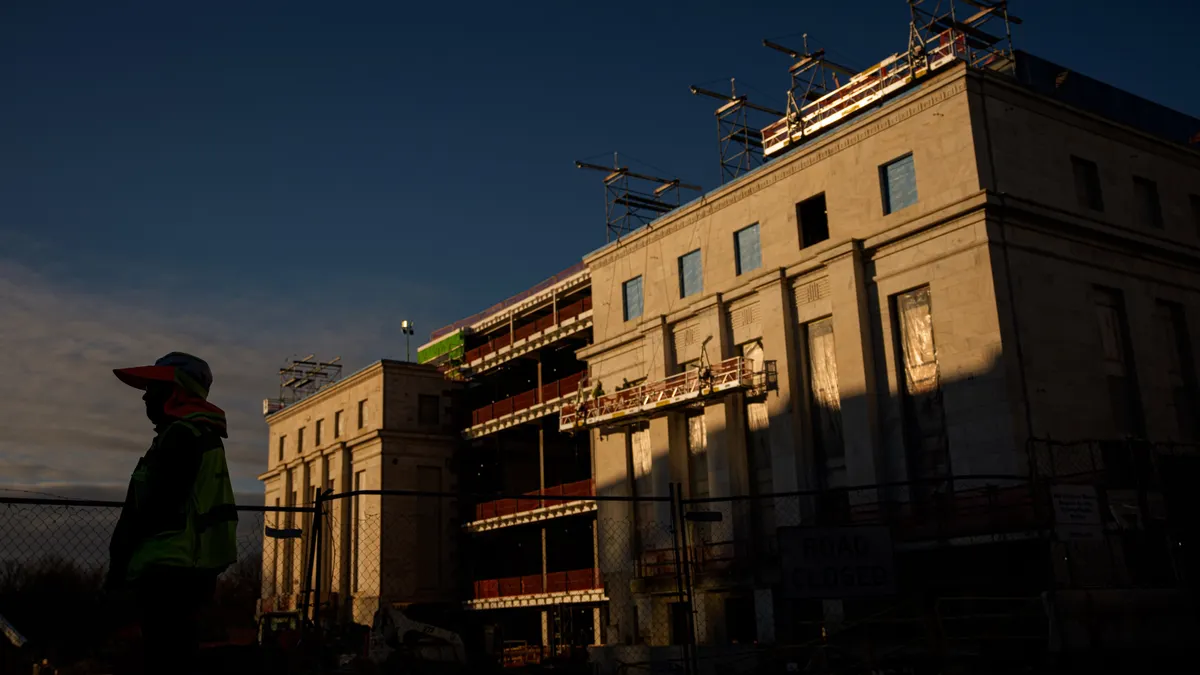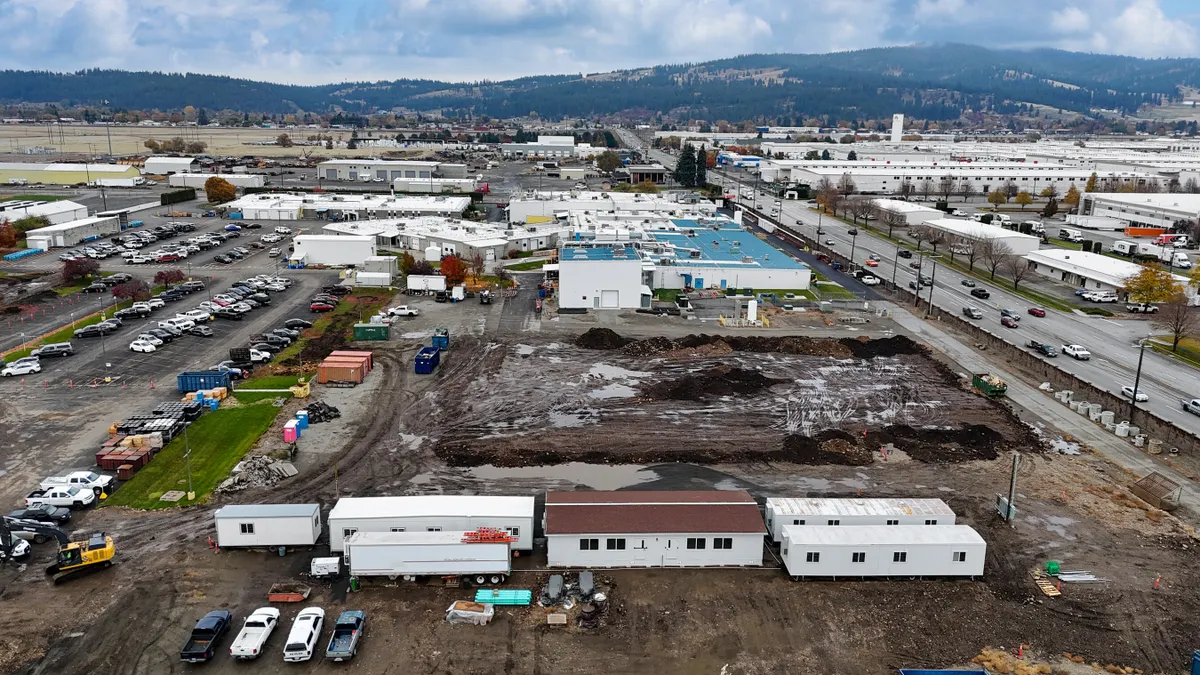It has not even been two weeks since Hurricane Michael hit the Florida Panhandle, laying waste to beach towns and all but flattening waterfront Tyndall Air Force Base in Panama City. The storm destroyed the installation's docks and marina, razed buildings and damaged hundreds of millions of dollars of jets and other equipment, leaving the base closed indefinitely. There is no power to areas with the most damage and there probably won't be for some time despite utility crews working around the clock.
As recovery efforts move forward, the focus is still on the human element — seeing to the injured and to those who have lost their homes and searching the rubble for those who didn't make it. Soon, however, commercial and residential property owners, as well as the public agencies whose assets sustained damage, will start rebuilding, and that's where the construction industry comes in.
While Hurricane Michael was more destructive than hurricanes that have hit Florida in the recent past, much of what lies ahead will likely play out the same way as it did with lesser storms, leaving a roadmap of sorts for those contractors that will soon head to Northwest Florida to begin restoring what nature destroyed.
Licensing
Florida is one of the most heavily licensed states in the country where the construction industry is concerned, and in most cases, applicants are required to meet stringent experience and financial requirements and pass a series of exams before being allowed to do business in Florida as contractors.
However, in the past, the governor has directed the Florida Department of Business and Professional Regulation to relax those rules after major storms when it appears that there might not be enough licensed Florida contractors to perform the necessary work in an expedited fashion.
After Hurricane Irma rolled through the state last year, Gov. Rick Scott issued an order that allowed state-licensed general, residential and building contractors to perform roof replacements and repairs rather than having to subcontract the work to licensed roofing contractors as state law mandates. This temporary exemption was valid in all 37 counties covered by the Federal Emergency Management Agency's (FEMA) Disaster Declaration.
In 2004, after four hurricanes hit Florida in one season, former Gov. Jeb Bush signed a similar order, but also permitted out-of-state roofing contractors to do business in the state for a limited period of time as long as those companies complied with state insurance requirements and other regulations.
There has been no such announcement yet in the wake of Hurricane Michael, but given the extent of the damage, contractors should expect some relaxing of licensing laws for the affected areas.
Scams
It's an old story. A property-damaging natural disaster strikes and con artists who are determined to make a few bucks descend on the area, taking deposits for construction work they have no intention of doing. Some contractors also see these situations as a chance to make some extra cash and might try to perform work they're not qualified to do, leaving a substandard product behind or taking on more work than they can complete in a reasonable amount of time.
For this reason, legitimate contractors from other areas of the state might be treated with suspicion in post-Michael Florida, and state officials could be conducting more random license checks when they see an active construction site.
This is a good time for contractors planning to perform restoration work in Northwest Florida to make sure their trade and business licenses are current and that they also have the proper general liability and workers' compensation coverage in place, along with the documentation to prove it.
In addition, even though processing times might be long after an event like Hurricane Michael, construction work still must be permitted and inspected.
Limited resources
Rebuilding an entire region takes an abundance of construction materials and manpower, both of which will be in short supply.
Crews that specialize in post-storm construction work have their hands full in the Carolinas and Virginia with the aftermath of this summer's Hurricane Florence, and there is still work going on in Texas after last year's Hurricane Harvey. When put in the context of an otherwise active construction market, finding enough workers is going to be difficult at best. With little time to spend on traditional recruiting methods, contractors will likely have to entice those in-demand workers with more money.
Contractors will also likely be waiting longer than usual for building materials, particularly roofing shingles and long-lead items like custom windows. Although price gouging is illegal, that doesn't mean there aren't legitimate reasons why material prices might increase, such as extra costs related to increased production and expedited shipping.
Building codes
After Hurricane Andrew roared through the Miami area in 1992, leaving behind more than 60 fatalities and $25 billion in damages, South Florida revamped its building codes into some of the toughest in the country. The state of Florida eventually incorporated a great deal of those changes into its statewide building regulations.
Given the widespread devastation caused by Hurricane Michael — which, in some instances, left nothing but concrete slabs where homes used to stand — the state will likely review existing building codes to determine if they need to be even stricter in the areas of wind resistance and elevation. At the very least, state building officials will try to nail down the differences between buildings that were able to survive the storm and those that were not.




















